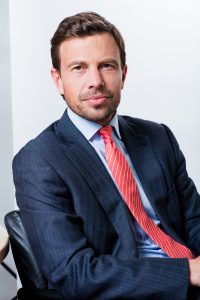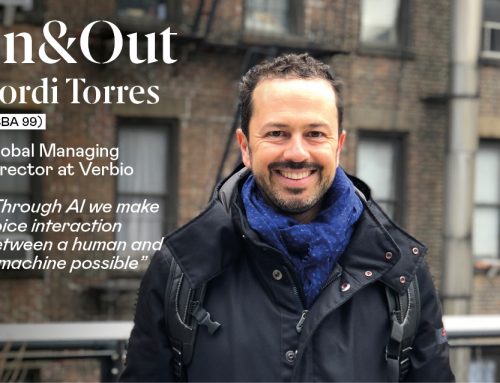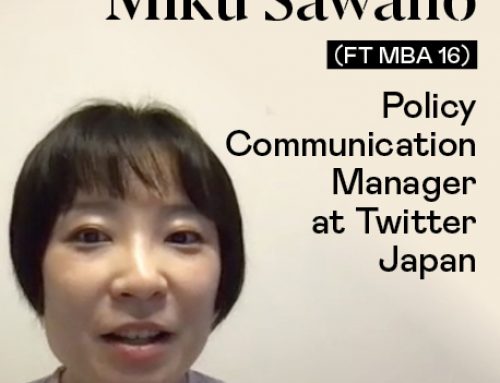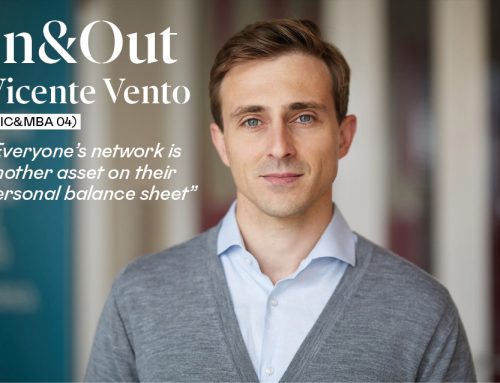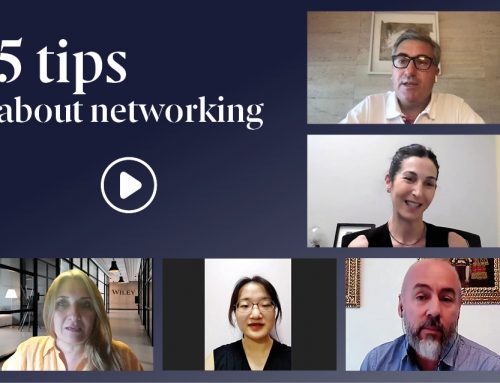David Holtmann (MBA 06), Managing Director at Accenture Strategy
David joined Accenture Strategy Switzerland more than 4 years ago. Now he lives in Zurich, a small but vibrant city, but in the past he implemented several projects in emerging markets working for Globalpraxis, Oliver Wyman and DiamondCluster. For him, pursuing an international career is rewarding and exciting but also challenging.
– Accenture Strategy is the company you have worked at for the longest, five years in fact. What is it like to live and work in Zurich?
Zurich/Switzerland, albeit in the centre of Europe, is everything but the ‘typical’ European city. 30-35% of the residents are expats – mostly with a university education working alongside Swiss locals in multinationals across all sectors (predominantly banking and consumer goods). Although the two groups don’t ‘mingle’ too much, the high number of expats gives the city an extremely international flair.
The city and surroundings offer an endless selection of things to do: from enjoying the beautiful lake, skiing and trekking in the most amazing mountain scenery, endless sporting activities, culture, concerts and last but not least, a large number of bars and restaurants.
It is a small but vibrant city where you can have a great time…and that has been my experience over the years I have spent here.
– What does it mean for you to pursue an international career?
Pursuing an international career is rewarding and exciting but also challenging. The learning curve is extremely steep: you have to adapt your working and management style to local peculiarities and different market dynamics. It is like going out of your comfort zone. At the same time, you have to start from scratch in building up relationships and supporting your family in a new environment. But what you gain in terms of experience, languages and seeing ‘what is out there’ is extremely valuable…and it becomes even more apparent when you move on to the next step, be it moving to another city, changing roles or company.
– In your current position, you are the Managing Director of Accenture Strategy, which offers consulting services and focuses on technology. How has the digital revolution changed the consultancy?
We provide very similar Consulting Services to other strategy firms. However, at Accenture Strategy, we are able to submit a pitch and discuss end-2-end solutions. The proposals we recommend are implementable and realistic. In addition, Accenture Strategy can discuss key enablers (e.g. technology, outsourcing,..) that will have a multiplier effect. In that sense, technology used to be just the IT landscape and architecture, but today it is so much more: companies that want to win in the long term need to have a winning digital strategy, which needs to be constantly adapted to tomorrow’s necessities with regards to the B2B and B2C world. The digital strategy forms part of the more overarching omni-channel strategy: in order to succeed with traditional brick and mortar stores, even traditional retailers need to be present and engage in the digital space; large sections of the purchase path occur in the digital world, although the transaction then occurs in a physical store. Other aspects such as artificial intelligence, robotics or the Internet of Things also need to be considered by successful and flexible organisations. Consulting companies (apart from certain specialised niche players) who want to really add value and prepare their clients for these new parameters need to be at the forefront of such topics.
– What challenges do you face in your career in the medium term?
Although there has been a first wave of consolidation in the consulting industry, the number of companies providing services is still high. In addition, most of the medium to large companies branch out and offer all types of services. The big 4s become stronger in strategy and operations by absorbing smaller firms; the larger, pure strategy houses recognise the need to provide recommendations that can be implemented and put into use. Everybody is moving into the digital arena…the challenge is to remain distinctive in this environment. Though at the same time, this is also the biggest opportunity.
– You have also worked in several companies linked to the financial industry (UBS Investment Bank, Dresdner Kleinwort Wasserstein). How has this experience influenced your current position?
It has been very valuable as I had the chance to gain some experience of P&L analysis. Although this should be part of any business discussion nowadays, it is quite surprising how many people would not be able to calculate the cash flow ad hoc or understand which basic KPIs and ratios should be applied and what they mean. All of these aspects need to be taken into account when discussing the P&L impact of recommendations, programs and investments.
Here, I have to give credit to the financial analysis course of the ESADE MBA. What was taught during the extremely interesting (and funny) sessions by Joan Masons and his team – balancing theory and practice – has been of enormous value.
– What would you say has been the most outstanding adventure of your career?
I am lucky to have been able to implement several projects in emerging markets: sitting in a Coca-Cola van in Cairo at 50 degrees with both the driver and supporter (who carries the cans and tins to the shops) smoking, loud Egyptian music…while trying to search for better opportunities to sell and distribute the product to sometimes very ‘interesting shops’ is certainly one of the highlights.
– You trained in both South Africa and Spain. What has ESADE meant for your career?
ESADE was another cornerstone or chapter in building up international experience. It was the ‘academic’ chapter of my international career and a wonderful experience. Working for 18 months with fellow students from all over the world – who all have different personalities – has been an incredible experience. In addition to the academic lessons, you learn from others, you learn about yourself, you learn how to work more efficiently and lastly, you make an incredibly valuable network of friends and colleagues. All of this experience provided an extremely valuable asset for my post-MBA life.
– What benefits have you found in counting on the ESADE Alumni International Network?
The ESADE Alumni International Network has provided me with many benefits: socialising and making new friends around the world, e.g. in Zurich, exchanging with other professionals and accessing the ESADE BAN, in which I am an active member. On the other hand, I strongly believe that all alumni should become part of the Alumni Network. The bigger it grows, the better. Just to name a few advantages:
- Broader access to talent (for recruiting) in terms of those enrolling in ESADE
- Network effect – the larger the better both for social but especially business purposes. I have been in several situations with prospective clients where both of us had shared the ESADE experience…and believe me, this is a nice icebreaker at the beginning of a conversation
- I also believe that we have a duty to support the students who are currently enrolled in the programme, whether they have a question on life after the MBA, simple mentoring or supporting them in their job search

